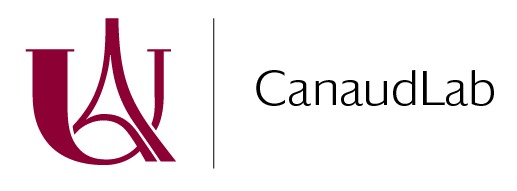The team of Professor Guillaume Canaud of the adult nephrology-renal transplantation department of the Necker-Enfants Malades AP-HP hospital, has been very involved for several years in the management of patients with dysharmonious hypergrowth syndrome (PIK3CA-Related Overgrowth Spectrum, acronym PROS), pathologies linked to activating mutations of the PIK3CA gene, present this year at the ESMO congress, in the form of a Late Breaking Abstract and an oral communication, the results of a life study study, which evaluated the effects of a PIK3CA inhibitor, alpelisib, in 57 patients with severe forms of dysharmonious hypergrowth syndrome. The results are positive with achievement of the primary endpoint (reduction of at least 20% in the volume of target lesions on MRI in 37.5% of patients), decreased target lesions on MRI in 74.2% of patients and no radiological progression of the disease in all patients. At the same time, patients showed clinical improvement from the 12th week of treatment which was then confirmed throughout the follow-up.
These data obtained with alpelisib constitute a major advance in the treatment of dysharmonious hypergrowth syndromes for which only repeated surgeries, often mutilating, and more or less effective symptomatic treatments had been proposed until now.
Disharmonious hypergrowth syndromes ( PIK3CA- Related Overgrowth Spectrum, acronym PROS) linked to the existence of activating mutations of the PIK3CA gene constitute a particular entity, characterized by the development of malformations and hypertrophic syndromes. It is a rare disease with an estimated prevalence of 14/1 million people. Professor Guillaume Canaud and his team from the Necker-Enfants Malades AP-HP hospital are particularly involved in this pathology and are one of the rare international teams to work on this disease (1).
Mutations in the PIK3CA gene are also observed in certain breast cancers and targeted treatments, PIK3CA inhibitors, including alpelisib, have been successfully developed in this indication. The results obtained led to the issuance of a marketing authorization by the FDA in July 2020 and by the EMA this year.
These data led Professor Guillaume Canaud and his team to evaluate the effects of this PIK3CA inhibitor in the treatment of PROS and in 2018, they reported for the first time in the famous journal Nature, positive effects obtained with alpelisib. on animal models reproducing these hypertrophic syndromes and describes very encouraging first results in 19 patients with particularly severe forms (2). These data have led the ANSM to issue a nominative ATU (Temporary Authorization for Use) so that patients with severe forms of dysharmonious hypergrowth syndromes can benefit from treatment with alpélisib.
A real life study. International study conducted with alpelisib in patients with dysharmonious hypergrowth syndromes ( PROS)
The EPIK-P1 trial is the first real-life study conducted with alpelisib in patients with dysharmonious hypergrowth syndromes. This is an international retrospective study (Australia, Spain, United States, France, Ireland) in which 57 patients (39 children with a median age of 10 years, 18 adults with a median age of 25.5 years) have been included. The response to treatment at 24 weeks, defined as a reduction of at least 20% in target lesion volume, with centralized blind re-reading, was the primary endpoint of the study. At the time of data analysis, the median duration of treatment with alpelisib was 18.1 (3.4-49.9) months.
As a certain number of patients were excluded for the analysis of the primary endpoint of the study (no imaging, no target lesions, no data at 24 weeks), the effects of treatment with alpelisib were analyzed in 32 patients.
After 24 weeks of follow-up, a reduction of at least 20% in the volume of target lesions (primary endpoint) was observed in 37.5% of patients and almost 3 out of 4 patients had a decrease in target lesions.
During the follow-up period, no patient, despite the severity of the disease, experienced disease progression.
The analysis of all the data of 57 patients has shown a significant improvement in symptoms related to the dysharmonieuse overgrowth syndromes (fatigue, vascular malformation, DIC, bodily asymmetries, pain) and, from the 12 th week regular. The improvement was then confirmed throughout the treatment.
Tolerance to treatment in the 57 patients was generally satisfactory and was maintained and / or improved over time. The most common side effects were diarrhea (15.8%), hyperglycemia (12.3%) and lesions related to the development of canker sores (10.5%) but no discontinuation of treatment for toxicity occurred. .
While the majority of patients had undergone mutilating surgeries before starting treatment with alpelisib, no further surgery was necessary during the first 24 weeks of treatment.
Conclusions and perspectives
These real-life data obtained internationally from 57 patients with dysharmonious hypergrowth syndrome show that alpelisib provides a clinical benefit which results in a reduction in the volume of target lesions in the majority of patients and an improvement in symptoms related to this disease. In addition, the side effects most often of minor to moderate intensity were generally manageable and transient.
(1) Quitterie Venot , Guillaume Canaud. [PIK3CA-related overgrowth syndrome (PROS)]. Nephrol Ther. 2017; 13 Suppl 1: S155-S156.
(2) Quitterie Venot Thomas Blanc , Smail Hadj Rabia et al. Targeted therapy in patients with PIK3CA-related overgrowth syndrome. Nature. 2018; 558 (7711): 540-546.
References
Oral communication posted on Friday September 17 at 1:30 p.m. (French time) on the ESMO website / Proffered Paper session – Developmental therapeutics
Abstract LBA23 Retrospective chart review study of patients (pts) with PIK3CA-related Overgrowth Spectrum (PROS) who have received alpelisib (ALP) as part of a compassionate use program. – Guillaume Canaud (Paris, France) et al. EPIK-P1
Source
